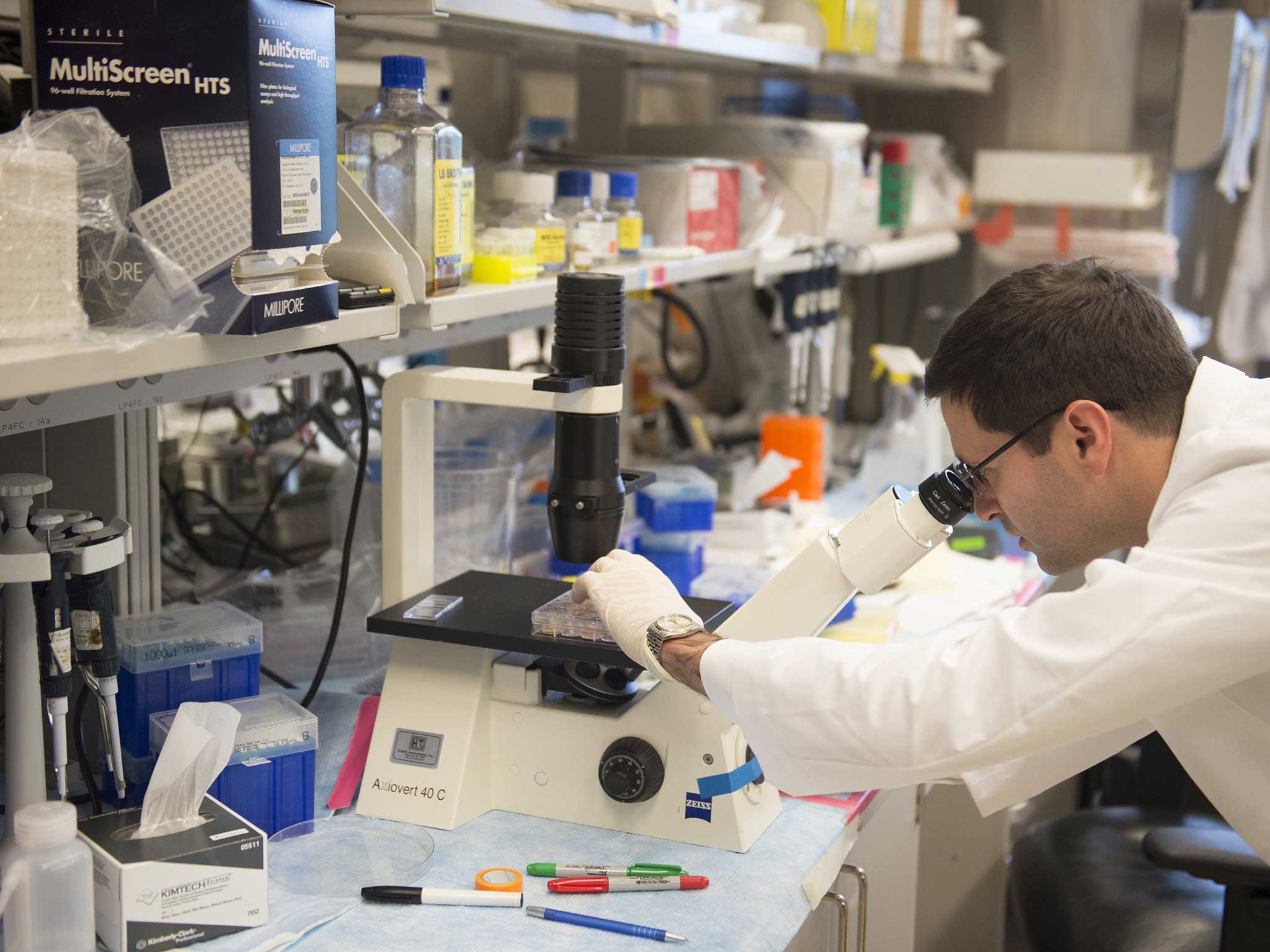Eight-year-old girl Camilla Lisant suggests possible cancer treatment to her scientist father over the dinner table
Daughter of husband and wife cancer research team in Manchester, Camilia Lisanti suggested using antibiotics to treat dangerous cells – and the lab results are promising

An eight-year-old girl may have come up with a treatment for cancer while chatting to her parents over the dinner table.
Camilla Lisanti, from Manchester, was eating dinner when her father Michael – a cancer research scientist – asked her how she would cure cancer.
The eight-year-old child thought for a moment and then suggested using antibiotics, “like when I have a sore throat,” to her sceptical parents.
Professor Lisanti and his wife Federica Sotgia, a husband and wife cancer research team at Manchester University, tested her theory at their lab and were surprised when several cheap and widely used antibiotics destroyed the cancerous cells.
Some antibiotics stop cells from making mitochondria, which supply cells with energy.
Cancer stem cells, which create tumours and keep them alive, often have high numbers of mitochondria.
Their research showed that four common antibiotics, which can cost as little as six pence a day compared to some of the latest drugs which can cost hundreds of pounds, killed these stem cells in samples from breast, prostate, lung, ovarian, pancreatic, skin and brain tumours.
Crucially, the antibiotics did not harm healthy cells. Professor Lisanti now believes that antibiotics could prove to be an inexpensive and safe method in treating cancer, thanks to his daughter’s suggestion.
“She has heard us talk about cancer a lot and we thought it would be fun to ask her what she thought about cancer therapy,” he told the Daily Mail.
“I thought it was very naïve to think you could cure cancer with antibiotics but at the end of the day Camilla was right.
“She usually is right about things. She always has a snappy answer that makes sense,” he said of his daughter, who at the moment wants to go into teaching.
Although promising, the research – at the moment – is limited to lab results and needs to be tested on people.
Dr Alan Worsley, Cancer Research UK’s senior science communications officer, told The Independent: “There’s no indication from this work that these particular antibiotics would kill cancer cells in patients, or what sort of side effects there might be. Some antibiotics have been known to have anti-cancer effects since the 1960s and are a well-established part of cancer treatment today, alongside other chemotherapies.”
Join our commenting forum
Join thought-provoking conversations, follow other Independent readers and see their replies
Comments